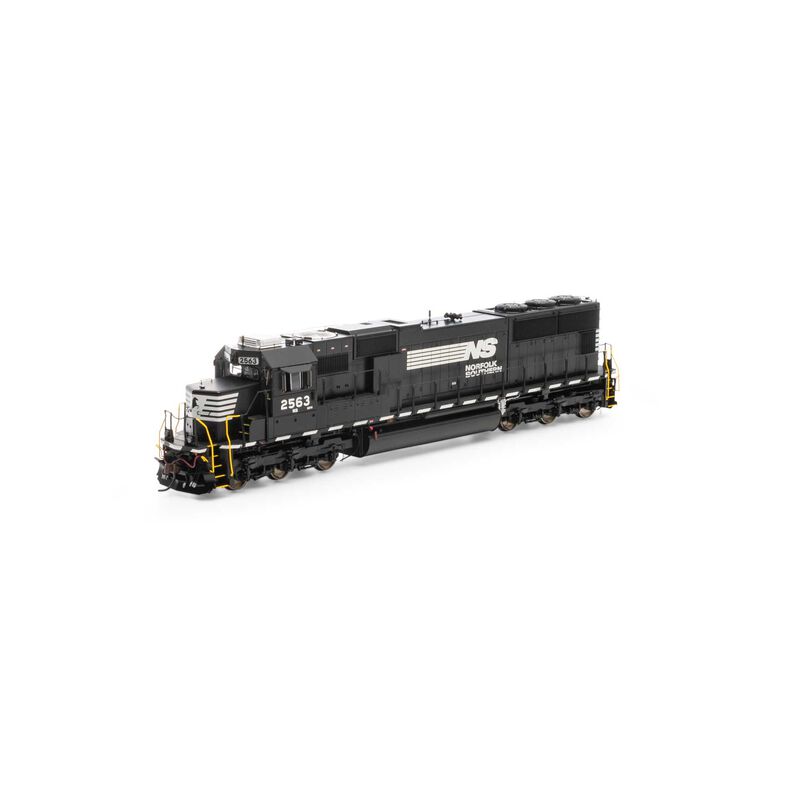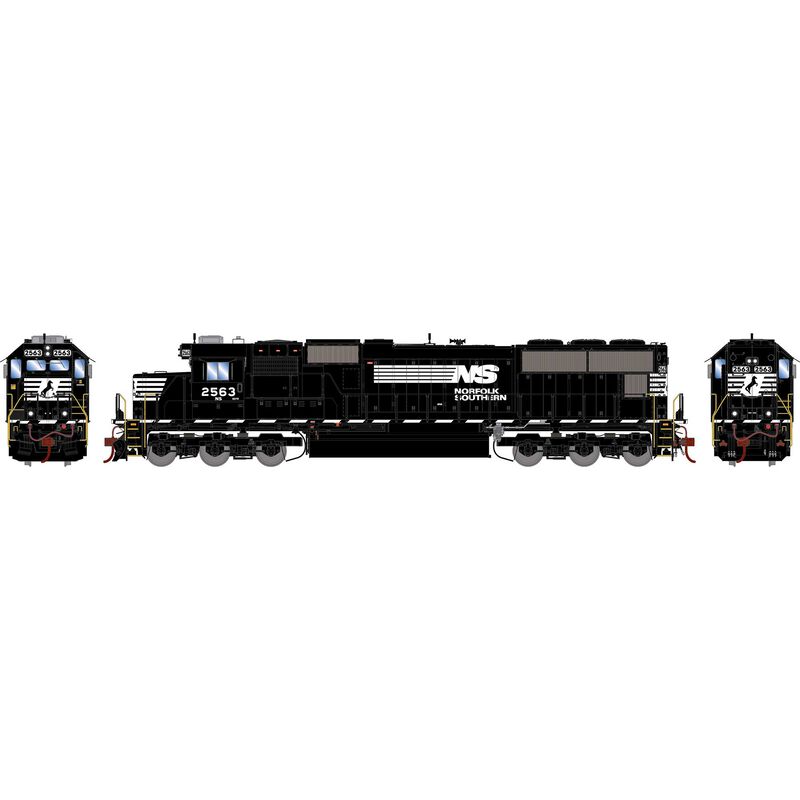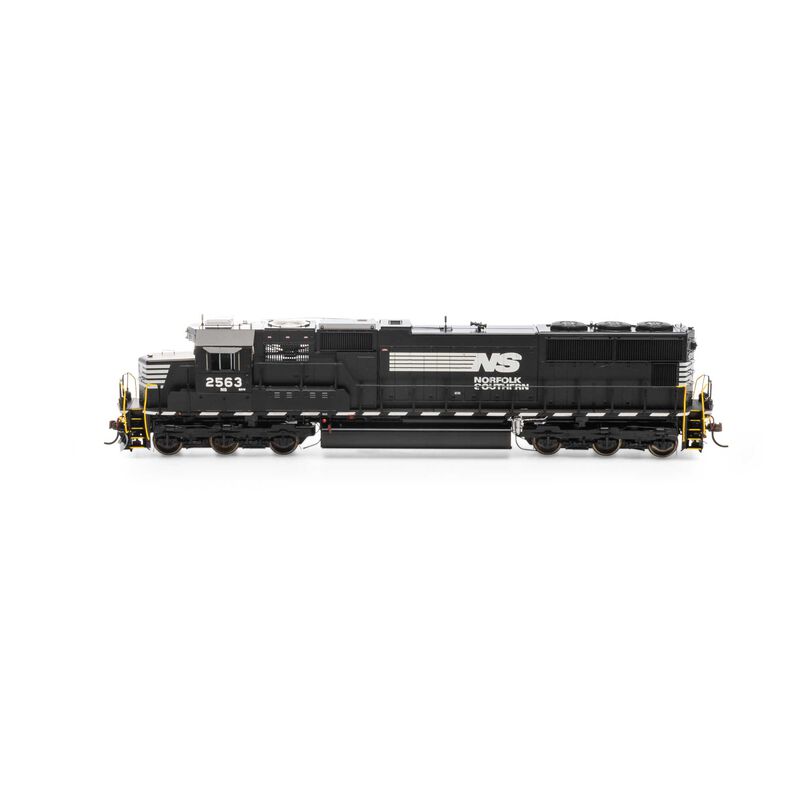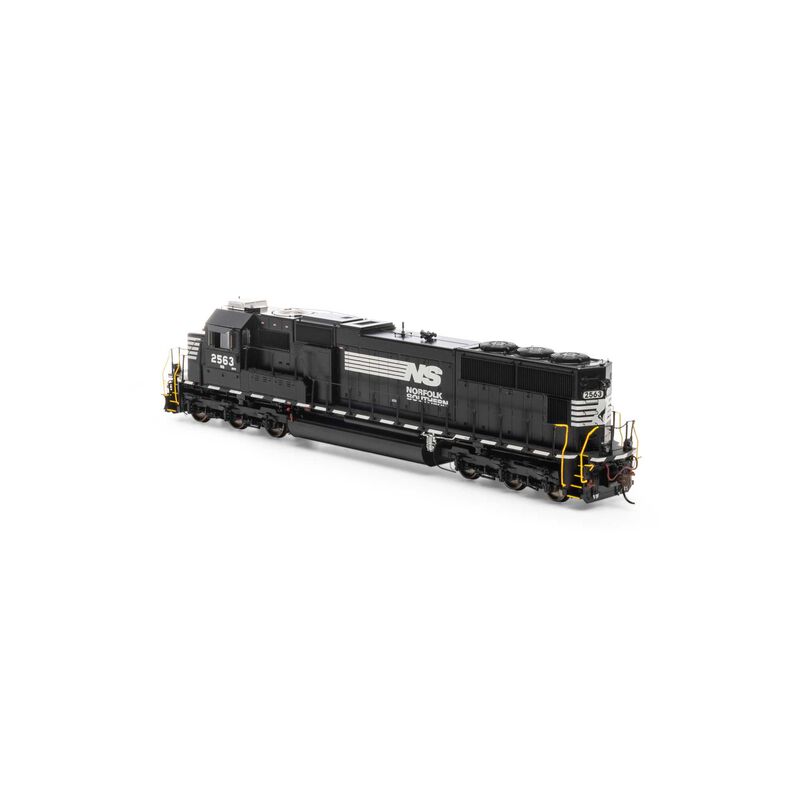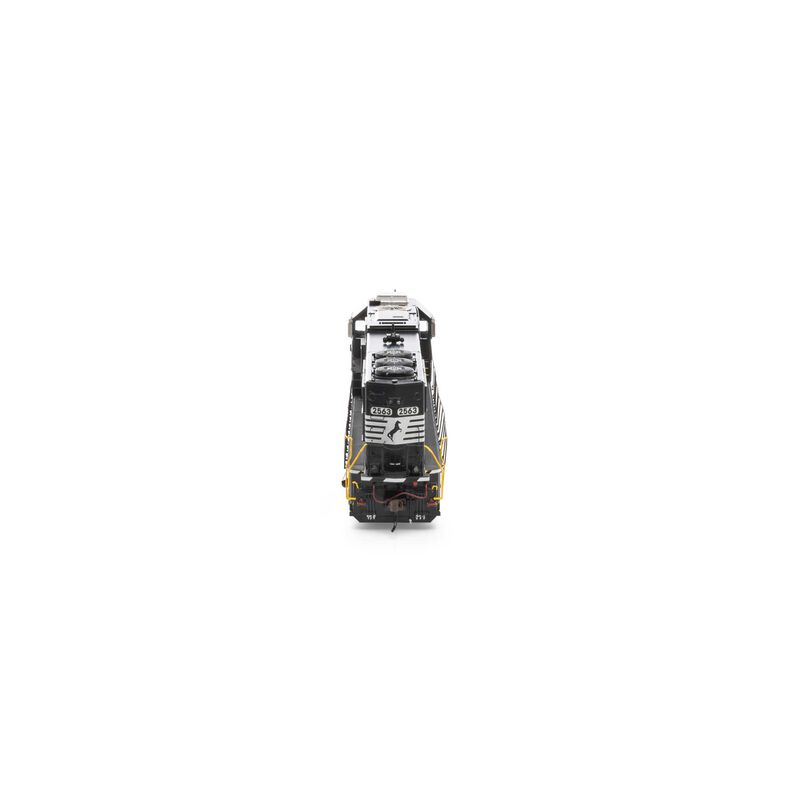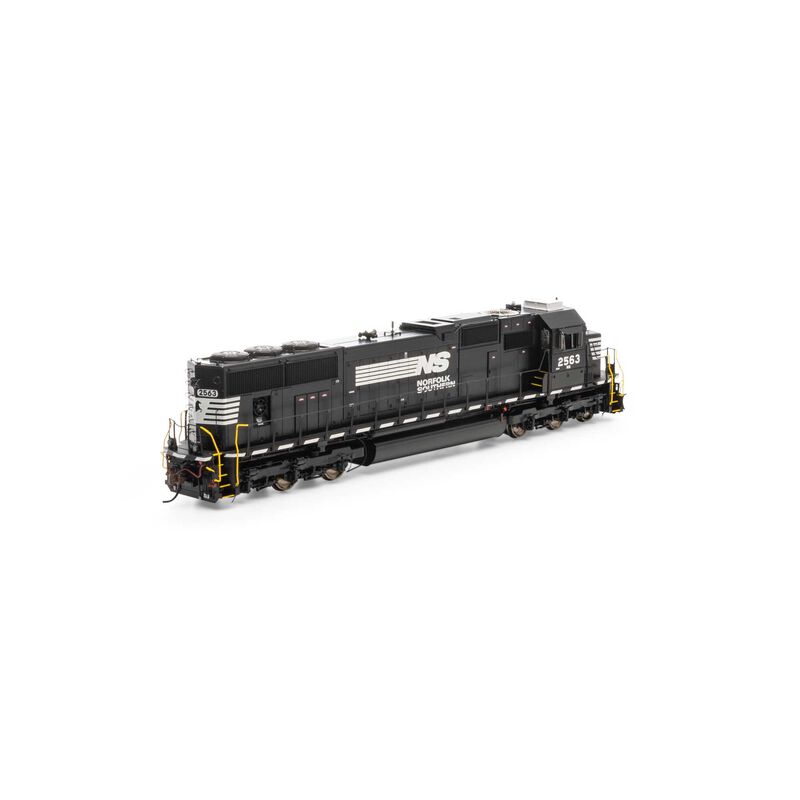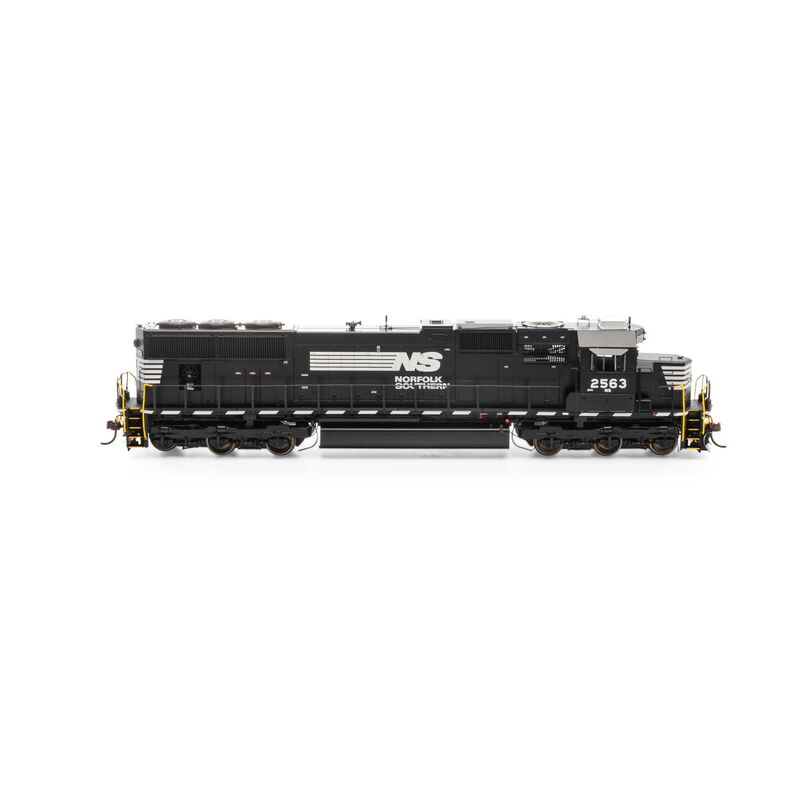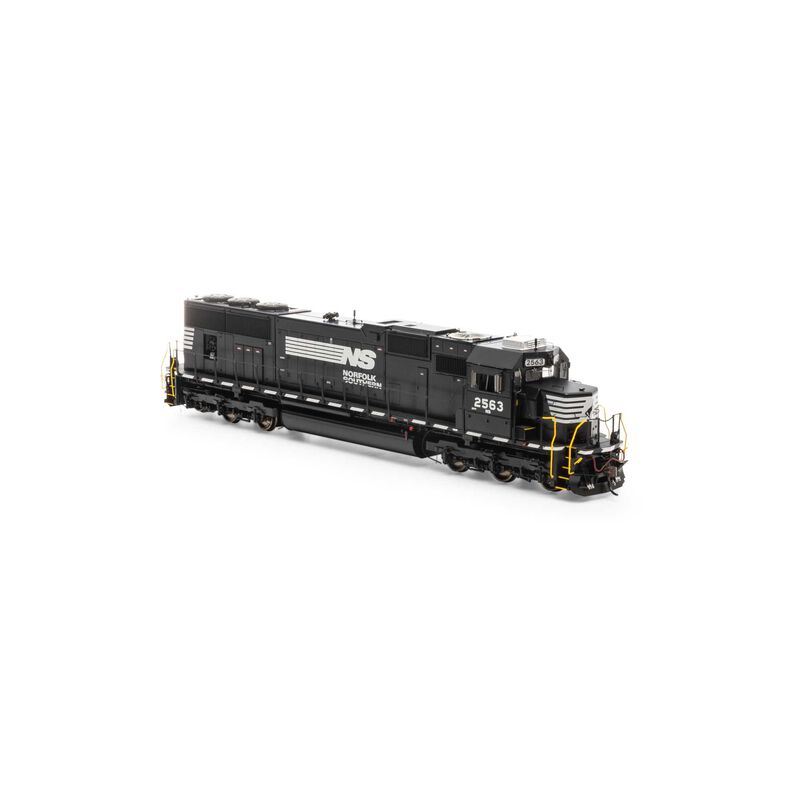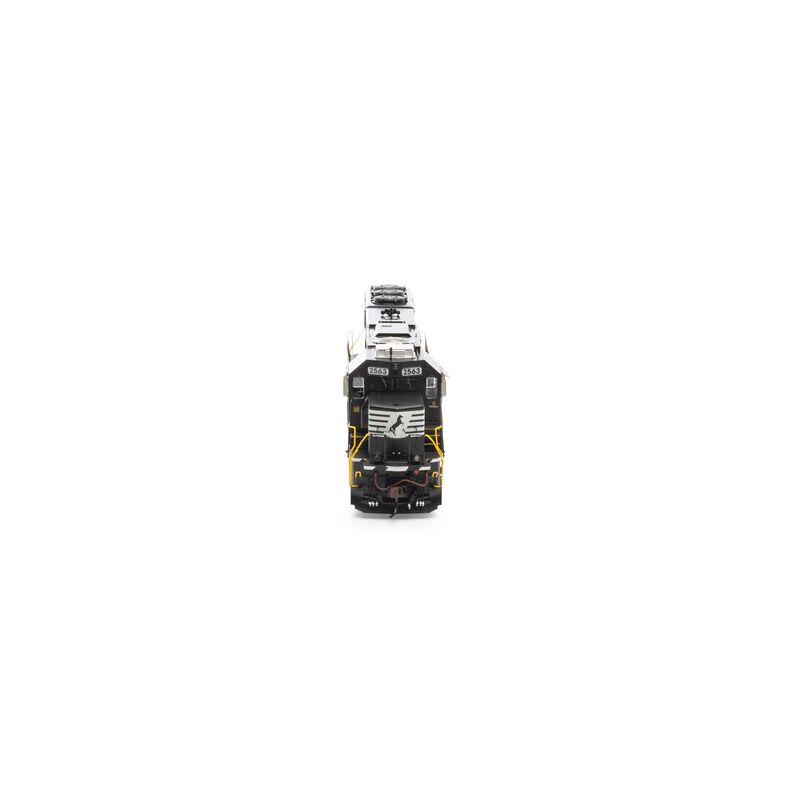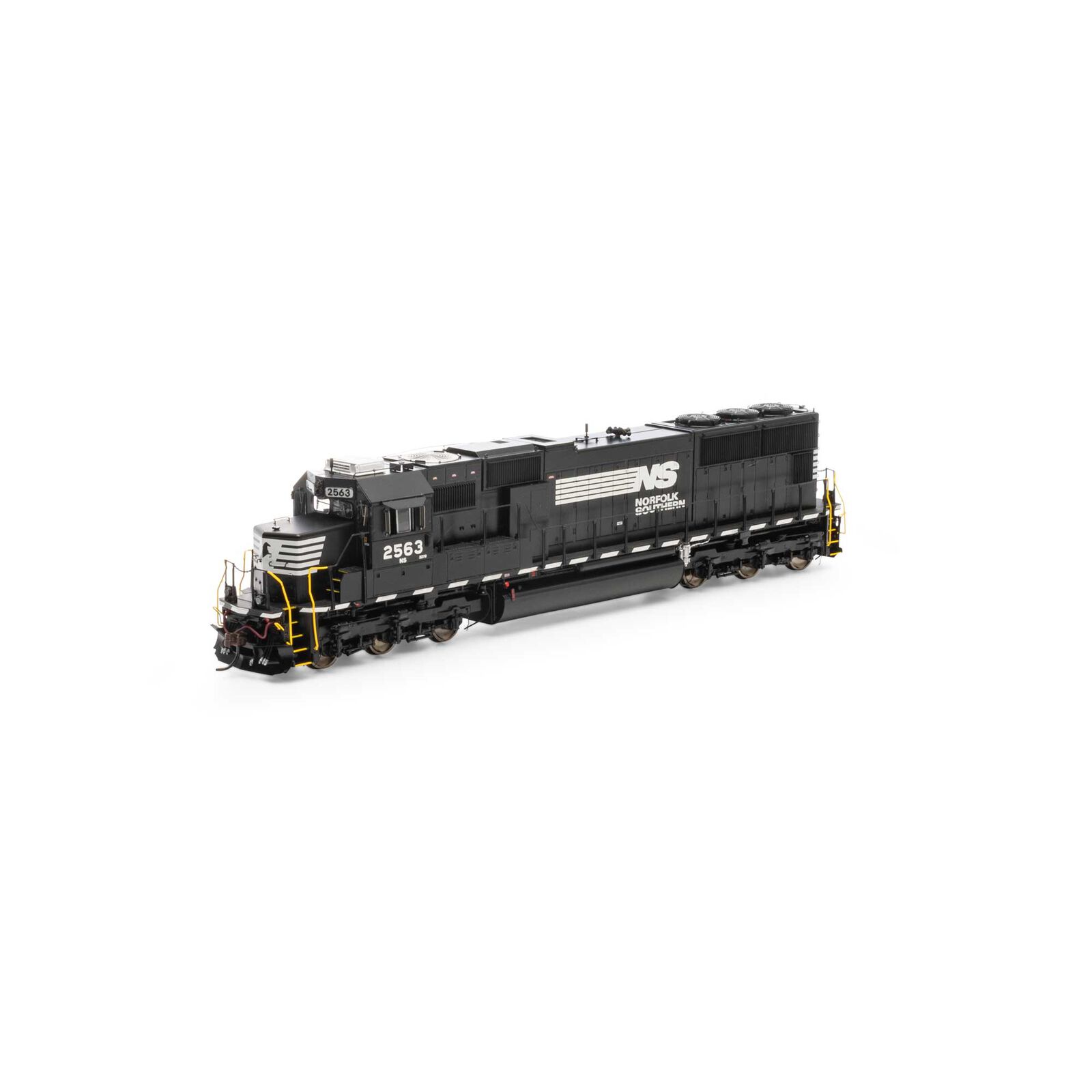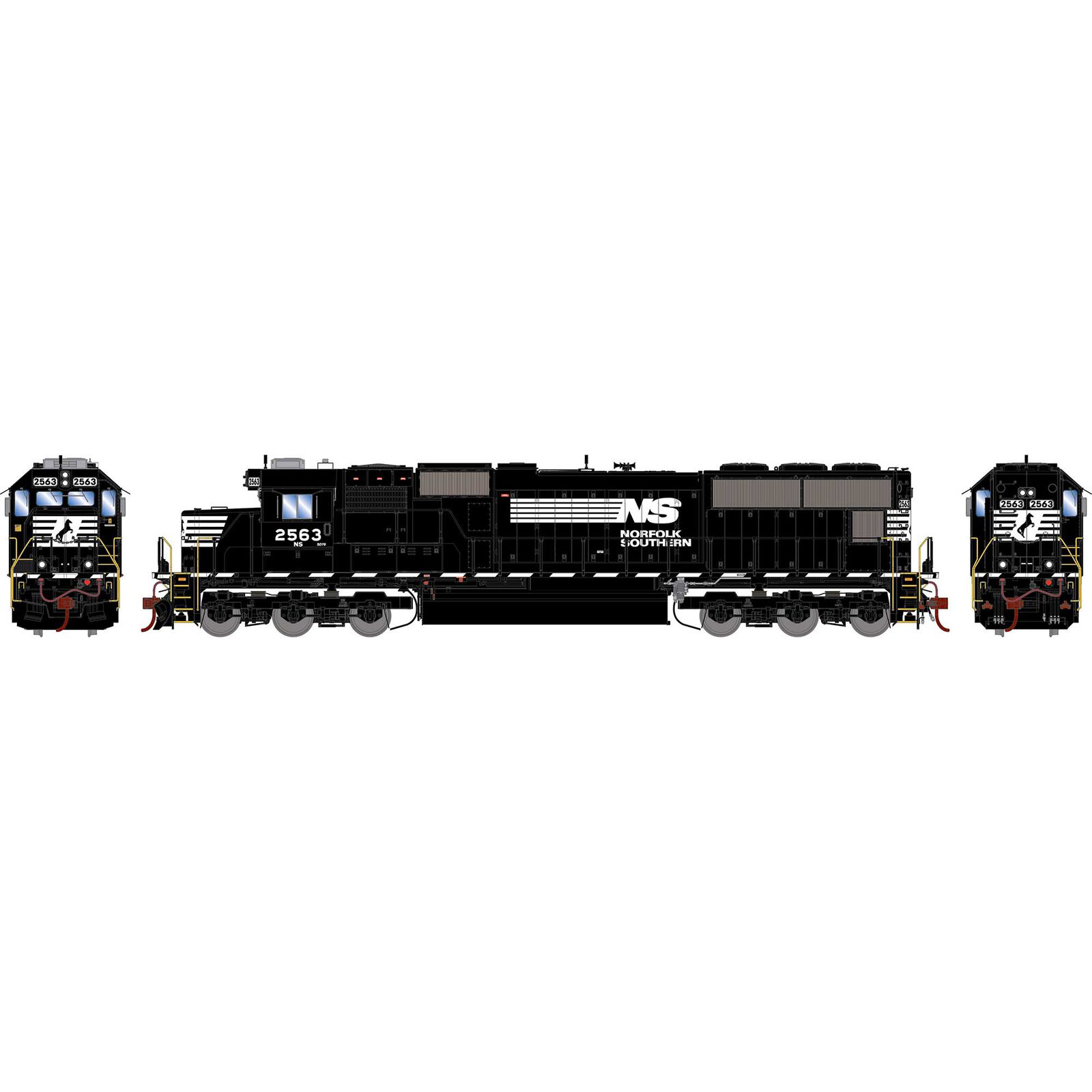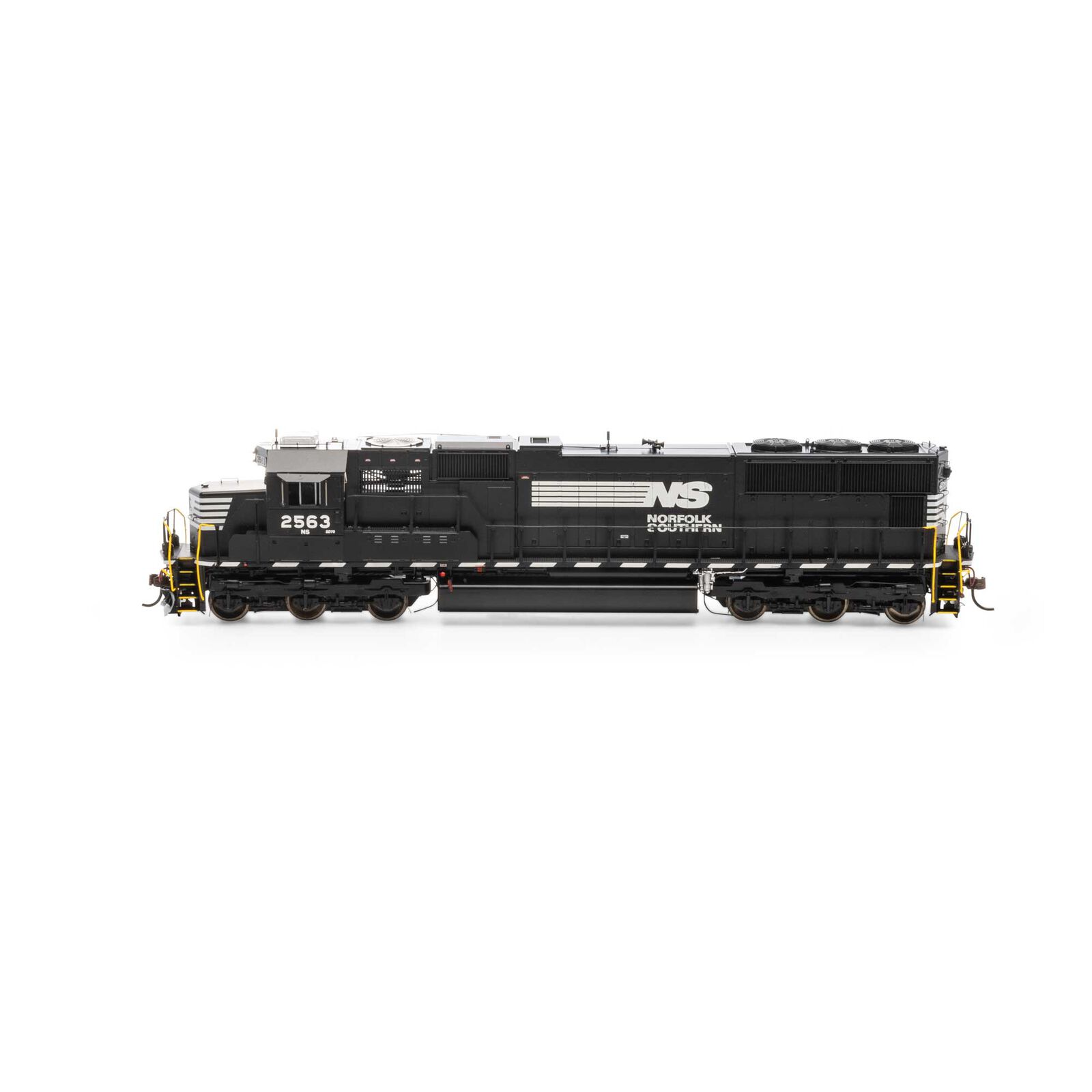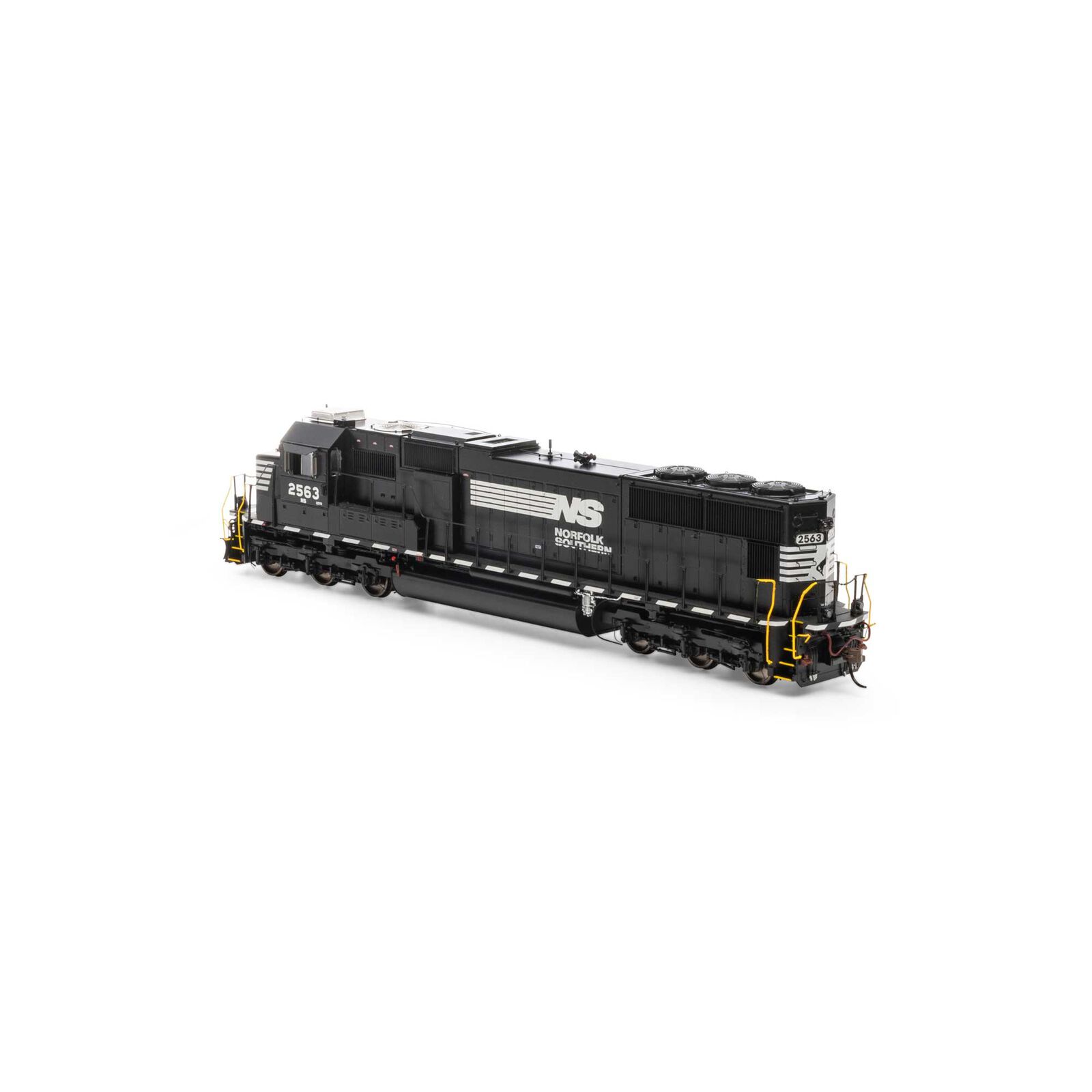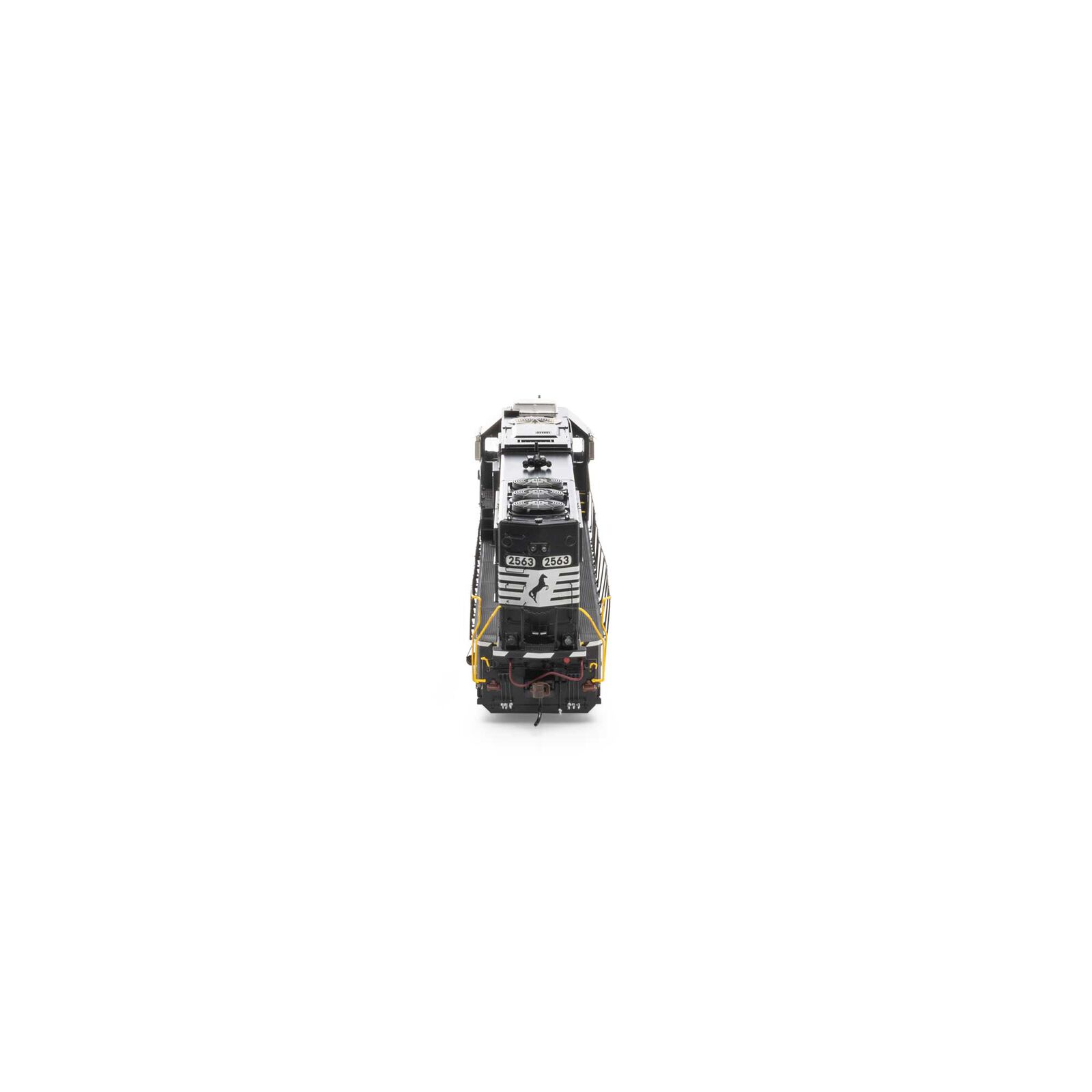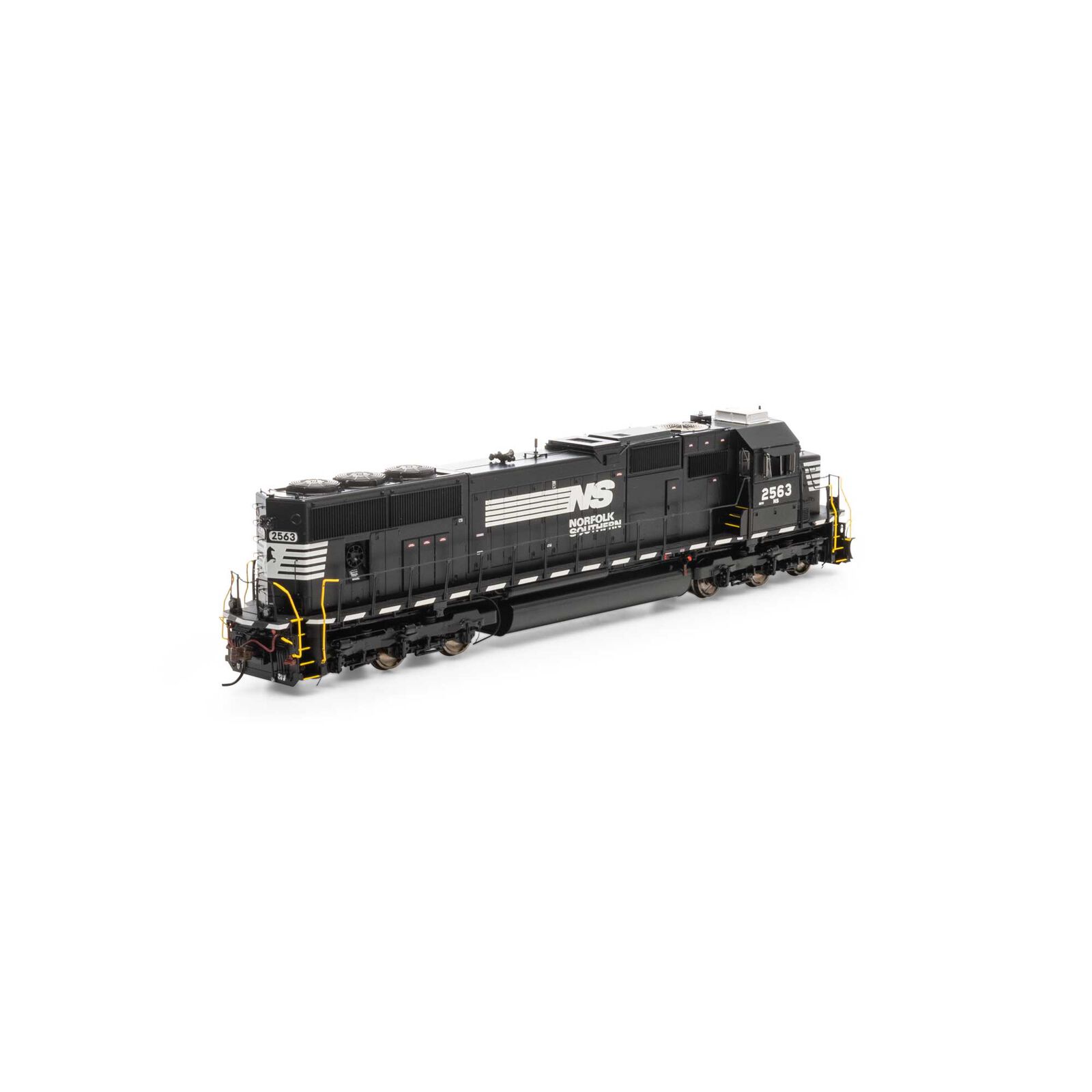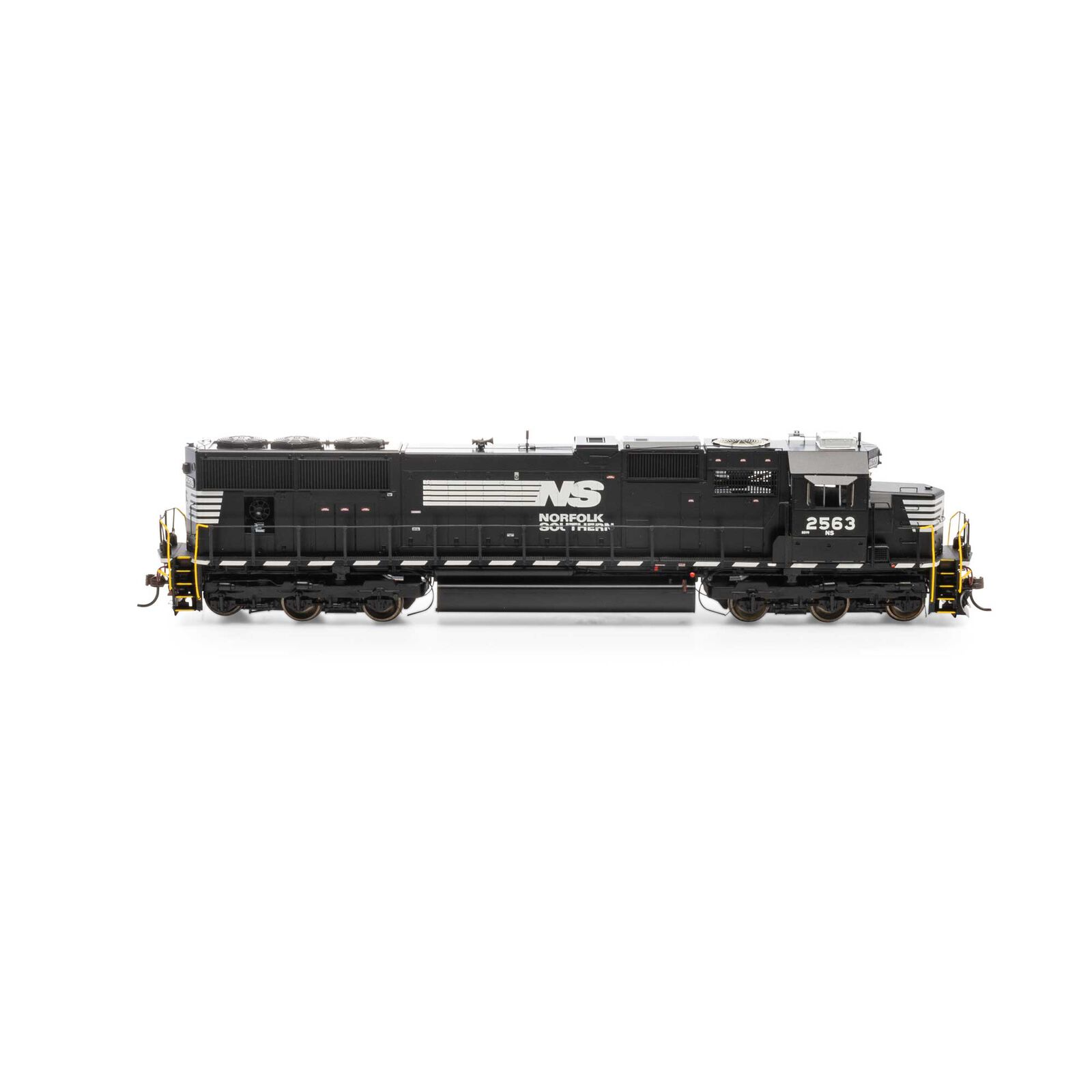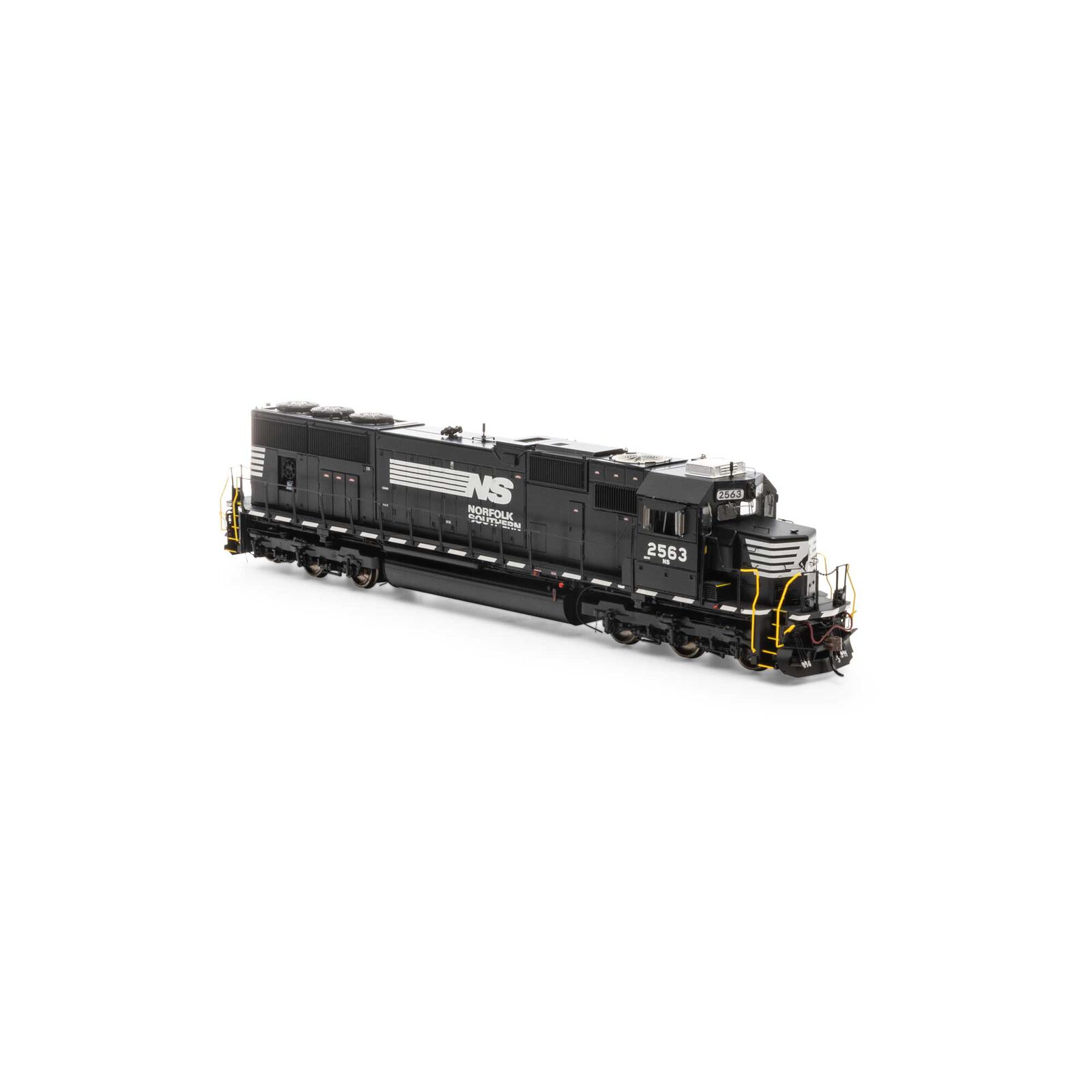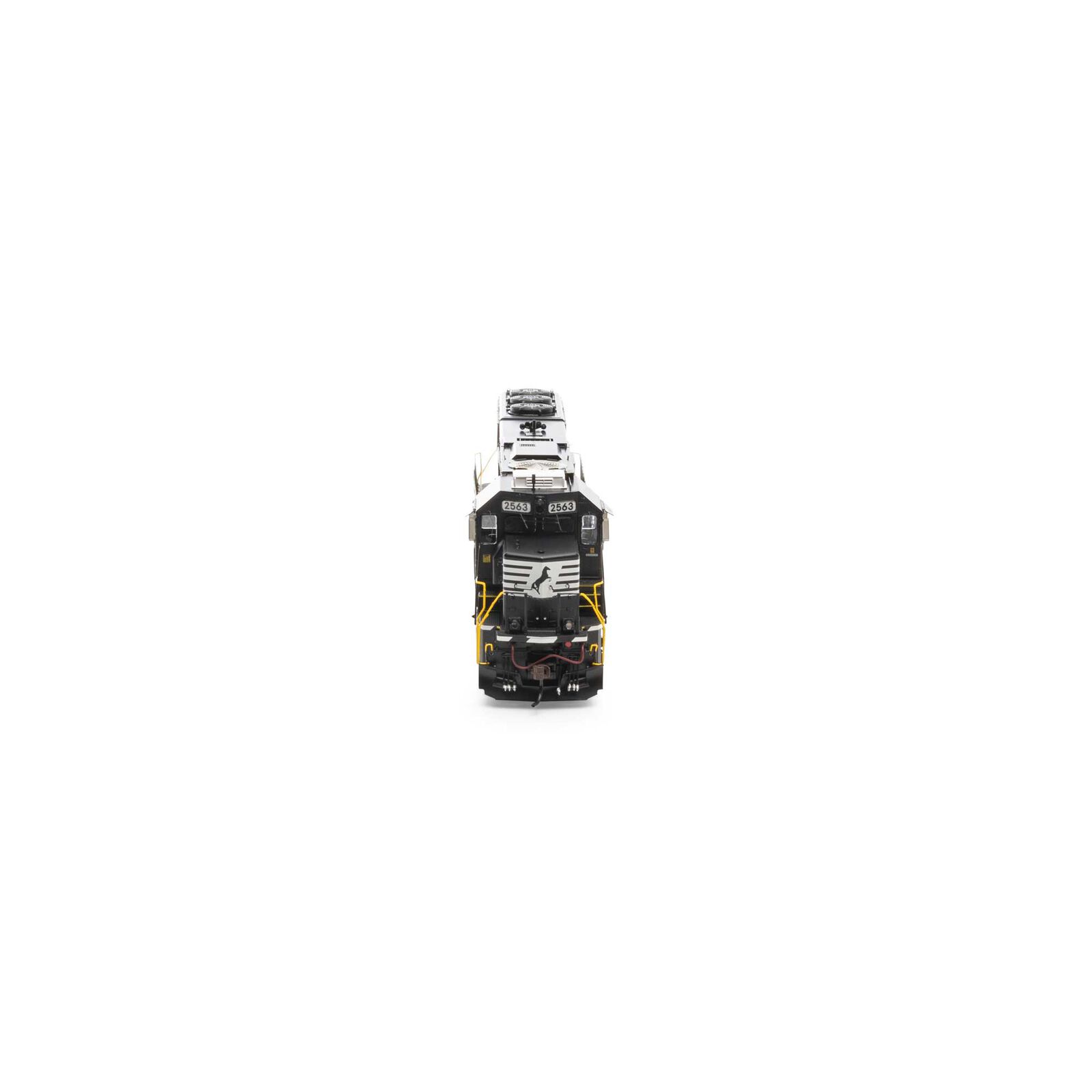HO SD70 with DCC & Sound, Norfolk Southern #2563
NS FEATURES:
- Acquired by NS after 1998-1999 split of Conrail
- Antennas and conduits on cab and long hood
- Nathan K5LAR24 horn
- Cab vent
- Air Conditioner
- Small front plow
- ”Dual” fuel sight glasses
- Late fuel tank
- Spare knuckle brackets on rear pilot
This group of former Conrail SD70’s joined the NS fleet in 1998 because of the split up of Conrail between NS and CSX. Early repaints featured diagonal dashes along the frame.
SD70 SERIES LOCOMOTIVE FEATURES:
- Lift rings
- Factory installed wire grab irons
- Dual sanding lines
- Windshield wipers
- Anti-glare panel painted on the nose
- Standard or Freight-style brake wheel
- See-through radiator fans
- DCC-ready features Quick Plug™ plug-and-play technology with 21-pin connector
- MU receptacles and cables per prototype
- Front / rear trainline and MU hoses with silver ends
- Coupler cut levers with loops per prototype
- Sunshades and sunshade tracks per prototype
- Roof details such as antennas, air conditioners, beacons, and conduits per prototype
- Pilot face spare knuckles and brackets per prototype
- Several types of fuel tanks, all featuring separate gauges, sight glasses, and breather piping
- Detailed and painted cab interior with control stand, display screens, detailed crew seats
- Fine-scale Celcon handrails for scale appearance
- Underframe mounted bell- regular or electronic
- Low mount stepwell lights (non-operating)
- Genesis driveline with 5-pole skew wound motor, precision machined flywheels, and multi-link drivetrain
- All-wheel drive with precision gears for smooth & quiet operation
- All-wheel electrical pickup provides reliable current flow
- Wheels with RP25 contours operate on all popular brands of track
- McHenry ®lower-shelf scale knuckle spring couplers
- Scaled from prototype resources including drawings, field measurements, photographs, and more
- Accurately painted and printed paint schemes
- Heavy die-cast frame for greater traction and more pulling power
- Packaging securely holds for the model for safe storage
- Fully assembled and ready-to-run
- Minimum radius: 18” — Recommended radius: 22”
LEGENDARY LIVERIES
What are Legendary Liveries? An Athearn exclusive, they are the ultimate answer to “What if?” Featuring some of the most popular railroad paint schemes of all time, these models are perfect for collecting, proto-freelancing, or just plain fun! Whether company proposed paint schemes, canceled locomotive orders, or alternate takes on history, Legendary Liveries are fun and unique additions to any roster. Enjoy these items, and answer the ultimate railroad question of: “What if?”
SOUND-EQUIPPED MODELS ALSO FEATURE
- Onboard DCC decoder with SoundTraxx Tsunami2 sound
- Sound units operate in both DC and DCC
- Full DCC functions available when operated in DCC mode
- Engine, horn, and bell sounds work in DC
- All functions NMRA compatible in DCC mode
- Precision slow speed control
- Program a multiple unit (MU) lash up with lead unit only horn, bell, and lights
- Many functions can be altered via Configuration Value (CV) changes
- CV chart included in the box
PROTOTYPE SPECIFIC INFORMATION
Continuing upon the successful SD60-series, in 1992 EMD debuted the next step in locomotive evolution with the SD70-series. While outwardly similar at first glance to the SD60M, the D.C.-drive SD70M featured several external design refinements from the predecessor model. Battery boxes were relocated to the left-hand side walkway immediately behind the cab, a large, boxy forward traction motor blower housing replaced the angular version used on SD60s, the raised walkway duct on the left hand walkway was eliminated, and an intake for the rear traction motor blower on the left hand side of the carbody, directly under the rear radiator intake grill, was added.
Internally, the SD70 boasted improvements as well; a 16-710GB prime mover, rated at 4,000hp, was coupled to a new alternator design, the AR20. New D70TR traction motors were standard and controlling all of this power and locomotive function was EMD’s new EM2000 microprocessor, which boasted more memory, twice the processing speed, and improved locomotive self-diagnostic capabilities compared to the processor suite used in the SD60. Even more revolutionary was the inclusion of EMD’s patented “Radial” truck design, the HTC-R. This design, which made its debut under EMD Demo SD60 #3, replaced the venerable HT-C truck, and is unique in its ability to shift, or “steer”, the wheelsets laterally through curves, resulting in greatly reduced wheelset and track wear, and coupled with the new D70TR traction motors and EM2000 microprocessor, greatly improved adhesion.
Continuing with previous practice, EMD built a set of Demonstrator SD70Ms, EMD 7000-7002, all equipped with the North American safety-cab (hence the “M” in their model designation), and decked out in an attractive gray, silver, and burgundy paint scheme. These units traveled all over North America, showing off the latest technology from EMD. Atchison Topeka and Santa Fe railroad requested a 4300-horsepower version resulting in the SD75M. As production continued, EMD incorporated their new “Whisper Cab” design resulting in the SD75I. The updated cab SD75I was purchased by Santa Fe successor Burlington Northern and Santa Fe, Canadian National, and the Ontario Northland. Having been built only in the mid-1990s, you can still find the entire fleet of SD75Ms and SD75Is in regular service today.
